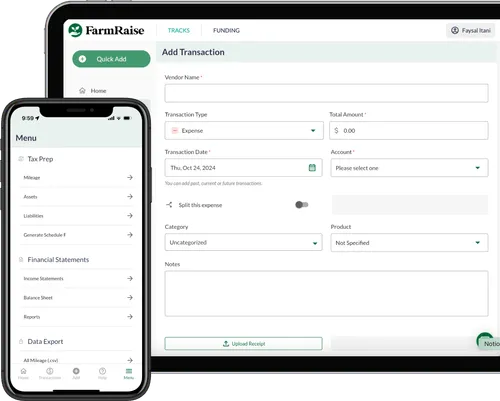April 19, 2022
Hatch your bird flu protection plan
"It was a heads up to us."
- Emerging Disease Coordinator at the U.S. Geological Survey's National Wildlife Health Center, Bryan Richards on the first moment bird flu got to North America.

What's top of mind?
It's official.The USDA’s National Veterinary Services Laboratories confirmed the presence of Highly Pathogenic Avian Influenza (HPAI) in commercial and backyard flocks. We usually call HPAI by its unofficial name: bird flu.
Here are the stats.
27 - states with confirmed cases
46 - confirmed cases in backyard flocks
72 - confirmed cases in commercial flocksGet updates here to find out if it's in your area.
What exactly are we dealing with here?
Even though it's called highly pathogenic, according to the Center for Disease Control, this strain is low risk to humans. And, hooray, there have been no human infections of HPAI ever reported in the U.S. However, it is a zoonotic disease, meaning it can be shared between species. Here are some symptoms to look out for in your flock:
- Decreased water consumption up to 72 hours before other signs
- Lack of energy, appetite or coordination
- Decreased egg production or soft–shelled or misshapen eggs
- Swelling of the head, eyelids, comb, wattles and hocks or purple discoloration
- Nasal discharge, coughing or sneezing
- Diarrhea
So, how can I protect my bird babies?
The main hosts of HPAI are wild waterfowl (think: ducks and geese) which don't typically show a lot of symptoms if they're infected with it. But, and it's a big but, if domesticated poultry (think: chickens and turkeys) come in direct or indirect contact with feces of infected wild birds, they can become infected and start to show the symptoms we just listed. Make sure you've got biosecurity practices fully understood. We want to help you protect your chickens, turkeys, pheasants, quail, domestic ducks, geese, guinea fowl and your other feathered friends. Here's how:
This Week's Farm Prosperity Checklist - Protect your birds with these do's and don'ts:
✅ Reduce your flock's and your exposure to other birds.
✅ Consider protective housing
Whether free range or caged, think about housing your birds in coops or flight pens under netting.
✅ Shower, change clothes and disinfect shoes before and after entering your housing areas:
Also consider wearing a medical-grade face mask. There's little info about whether humans can spread it as hosts so it's just to cover bases.
✅ Stay up to date
Follow FarmRaise on social media for updates and tips from other farmers and ranchers.
❌ Don't have a party
This one's not very fun, but USDA's Animal and Plant Health Inspection Service (APHIS) recommends restricting interactions between farm visitors and your flock. It's a "you don't have to go home, but you can't stay on my farm" situation.
❌ Don't leave litter feed out
It might attract wild animals who carry the virus.
❌ Don't touch sick or dead birds
Instead, check with your state health department about what to do. Report it to your state veterinarian or APHIS at 1-866-536-7593. Keep your flock away from all wildlife cadavers.
There's an app for that!
As a matter of fact, the FarmRaise app can help you determine if you're eligible for funding so you can boost your farm or ranch's infrastructure. Some states and counties even offer funding for livestock shelter structures.
SEE WHAT FUNDING PROGRAMS YOU'RE ELIGIBLE FOR >>
FarmRaise Community on Facebook 👍
We need know that HPAI is cause for concern, so let's stay connected to weather it together. What are you doing to protect your flocks? Help other farmers and ranchers in the FarmRaise Community by adding your thoughts on our Facebook page.

This week's survey results are in:
The Midwest and East Coast are experiencing the highest confirmed cases. Stay up to date with what's going on with bird flu in your county here.
Oh and in case you're wondering, it's still safe to eat eggs and poultry - though you'll be shelling out more for them than before. No infected birds should enter our food supply. But just to be safe, cook eggs and meat to at least 165 degrees Fahrenheit to kill any potential viruses.
Did you like this article? Get info like this delivered to your inbox before it's published on FarmRaise.com by signing up for the Morning Briefing.
